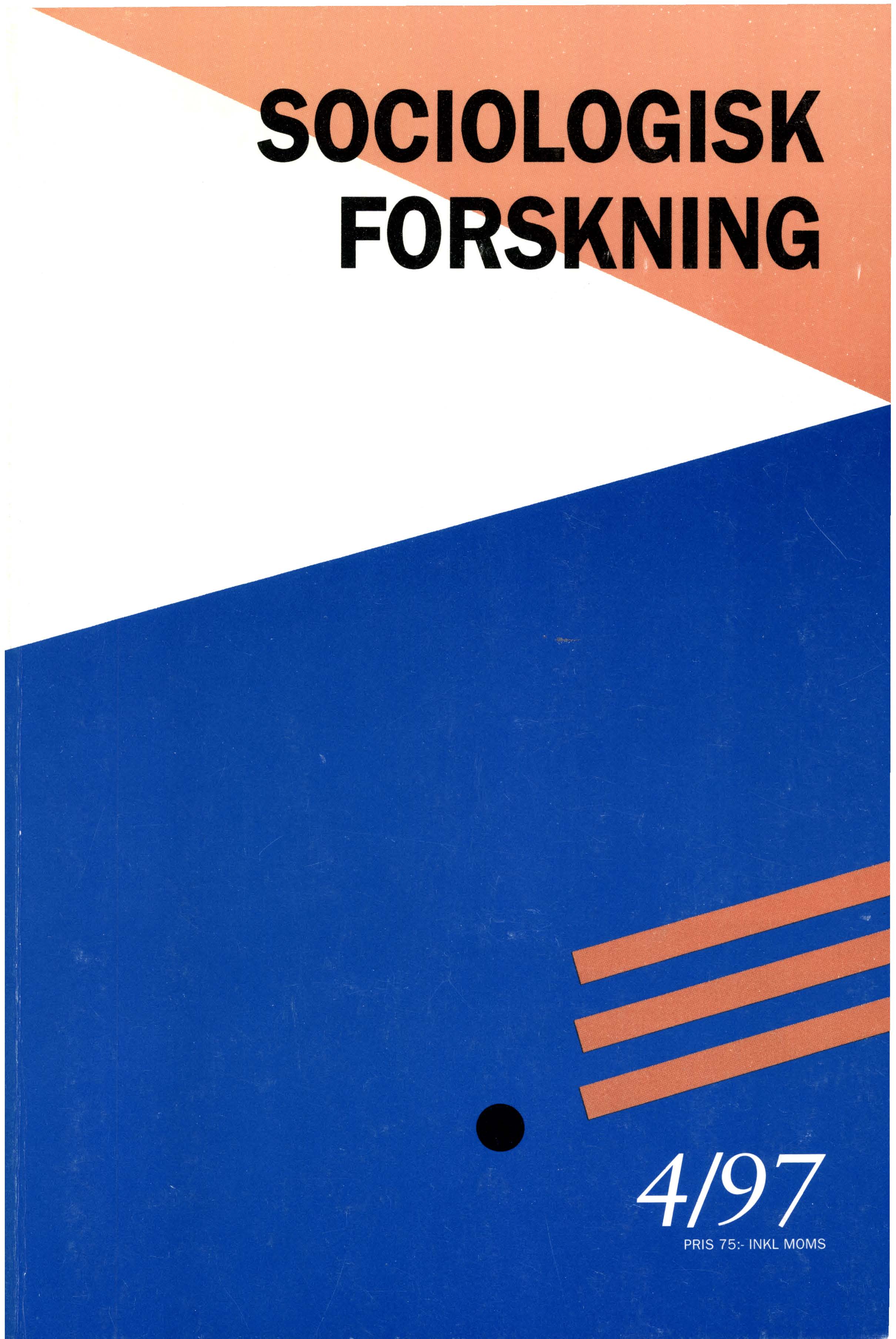Regler, förnuft, tinglighet och känsla som föremål för sociologisk analys - ett 50-årsperspektiv
DOI:
https://doi.org/10.37062/sf.34.18545Abstract
Academic sociology in Sweden, that is the kind of sociology taught at university departments under the tutelage of duely appointed professors of sociology, has celebrated its 50 year jubilee in the fall of 1997. The first duely appointed professor of sociology in Sweden was Torgny T:son Segerstedt. In this article his successor at the University of Uppsala, Ulf Himmelstrand, reflects on the place of a number of focal concepts and domains in sociological development in Uppsala and in his own career as a sociologist over the last 50 years. The focal concepts and domains dealt with in this article are Normativity, Rationality, Materiality and Emotionality. The main emphasis in the first stage of Swedish sociology was on Normativity; on processes of socialization, internalization of social norms, the regulation of social roles in social institutions, the formation of attitudes etc. The interplay of Normativity and Materiality in the earlier and later stages of industrialization was also dealt with in comparative studies of industrial communities. The author recounts his own attempts to deal with relationships between Normativity, Emotionality and Rationality in measuring the independent emotive meaning of ideological statements in political and child-rearing contexts - for instance in so-called symbolic politics. The Marxist resurgence is discussed and some Marxian queries, concepts and methods surviving later onslaughts on Marxism are identified. Their place and limits of rational choice theory are pointed out briefly. Finally it is suggested that the interplay of Normativity, Rationality and Emotionality at the interfaces of Materiality and Human Existentiality constitute processes involved in all the micro and macro-settings occupying the interest of sociologists: relations between men and women, family settings, the development of language, action and social roles, the development of productive forces, social, political, economic, religious and other organisations, social and mental history and the formation of ethical concerns in all these contexts.
Downloads
Published
How to Cite
Issue
Section
License
All content in Sociologisk Forskning is published with immediate open access, under the Creative Commons license CC BY-NC-ND 4.0.
All content may be read, downloaded, shared and printed for non-commercial purposes, free and without fees. Contents may not be altered. When content is reused, author, source and a link to the copyright licence must be provided. The author retains copyright to their content. No publication fees are charged.





